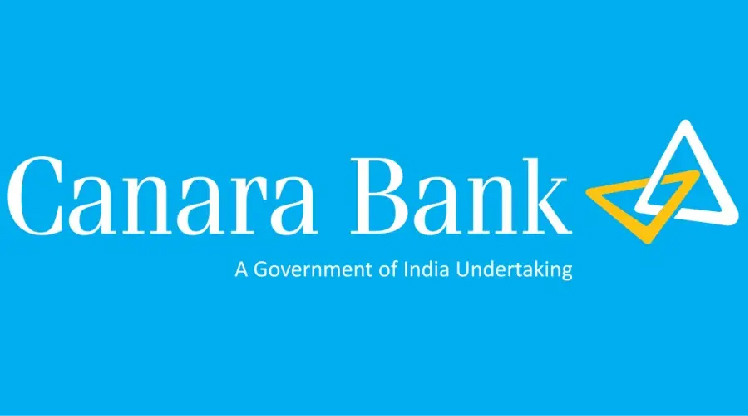UK Study Abroad
Fly to the sky with Kenneth International Education
Our Vision
We want the bright and talented youth of India to study at a prestigious UK university that will arm them with the necessary skills and qualities needed to land a high-salary position. Study at a UK university and acquire a globally-recognised degree that will enable you to live an incredibly successful life.
What We Aim To Do

Closing the Gap
Create A Bridge for talented Indian students to study, live and work in the UK.

Lowering Costs
No Service Charge to complete the university and Student Visa Application.

Financial Assistance
Find A Bank with an educational loan that fully finances your studies abroad.

Easy Travel Planning
Make Arrangements including booking flight tickets, finding suitable accommodation, opening a bank account, and class enrolment support.
Why Study Abroad ?
Education is incredibly valuable to students who seek a highly successful life. While India does offer some noteworthy universities, their reputation is incomparable to the prestigious institutions located in the United Kingdom. While there are dozens of reasons to study in the UK, from academic to improving job prospects, the value of a high-quality education abroad is greater than any local or out-of-state Indian university.
Reasons to Study Abroad

Earn while you learn.

Better quality of higher education improves job salary and prospects.

World-class teaching that is globally recognised.

Full-time work options available after graduation.

Opportunity to settle abroad indefinitely.

1-1 university support available to land a job before or after graduation.

Join 100s of clubs, make new friends and live in a diverse community.

Numerous short modules to choose from that suit your line of work.

State-of-the-art facilities and equipment for improved learning experience.
Study Bachelors
- Applicants from India can be considered for direct entry onto undergraduate degrees if they meet the minimum entry requirements below; state board entry requirements range between 60 and 80%.
Minimum qualification/grade:
- Higher Secondary Certificate
- All India Senior School Certificate
- Higher School Certificate
- Indian School Certificate (ISC)
- Intermediate Certificate
- Pre-University Course awarded on completion of Standard XII
- Indian Board name: HSC XII: Minimum accepted grades vary from 60 to 80% depending on the examining board.
- CBSE/CISCE/Maharashtra Boards; CCD equivalent: 65%; BBC equivalent: 70%; AAB equivalent: 75% West Bengal State Board; CCD equivalent: 55%; BBC equivalent: 60%; AAB equivalent: 65% All other state Boards; CCD equivalent: 70%; BBC equivalent: 75%; AAB equivalent: 80%. - If English is not your first language or you have not previously studied in English, our usual requirement is the equivalent of an International English Language Testing System (IELTS Academic Test) score of 6.5, with not less than 6.0 in each of the sub-tests. We also accept other English language tests.
A typical undergraduate bachelor’s degree lasts for three years. Each year is split into two semesters, one being Autumn and the other known as Spring. The Autumn semester starts near the end of September and ends in the middle of December. Until the end of January, you will be assessed through various assignments, group projects, and written examinations.
Each academic year represents a certain percentage of the overall degree, which will determine the overall mark for your degree. The final result will depend on what you achieve each semester across all the academic years.
Year 1
The start of your academic journey will begin easy. The first year of your studies is known as a ‘practice year’ where you will learn how to write assignments, work in group projects, and prepare for university-level examinations without worrying about your end of year result. This year is waived off your final degree mark.
Year 2 & 3
These final two years will be assessed for your final degree result. The second year typically represents a lower percentage of your overall degree mark (e.g., 40%), while your third year bears the most weight (e.g., 60%). By the time you complete your first year, these final two years should be a breeze.
While the pass mark for almost all undergraduate degrees is 40%, we highly recommend that you aim for 60% to 70% (or above) in order to portray yourself as an attractive candidate to employers. Most employers look for candidates with a 2:1 (60% to 69%) or 1:1 (70%+) degree.
Many of these courses offer work placements, where a student can work at a reputable company for one year. This experience will give you enough experience to obtain a high-salary position in most UK companies.
Additionally, you can also work up to 20 hours at any local business to earn some money while studying. This extra cash should help you cover your living and/or rent quite easily.
Tuition costs vary between universities, but they can range from 10 to 30 lakhs (including accommodation and other living expenses). Your loan provider should be able to cover these costs entirely.
Study Masters
- Holders of a Bachelors degree of three or four years in duration from a recognised university in India will be considered for postgraduate taught study. Holders of Bachelors degree will normally be expected to have achieved 55% - 60% or higher for 2:1 equivalency, or 50% - 55% for 2:2 equivalency depending on the awarding institution.
- Either: A four-year Bachelors degree (first class or very good upper second class)
- OR: A three-year Bachelors degree (first class) from recognised institutions in India.
- If you have been instructed and assessed in English language at a recognised institution, you may be exempt from IELTS or TOEFL examinations.
- Indian Standard XII English: Accepted subjects: Core English, English, English language and literature, First or Second language English, General English ENGLISH (Equivalent to IELTS):
- 70% or 140 out of 200(6.5 IELTS) I 70% or 140 out of 200 (7.0 IELTS) I 75% or 145 out of 200 (7.5 IELTS).
- OR: IELTS 6.5 overall with no component lower than 5.5 (except where course requirements are higher) and other acceptable SELT tests such as the Pearson Test of English (PTE).
A typical Master’s programme lasts one to two years. Each year is split into two semesters, one being Autumn and the other known as Spring. The Autumn semester starts near the end of September and ends in the middle of December.
Year 1
This year is the start of your academic journey. You are assessed this year on an overall dissertation with the possibility of some additional coursework. A dissertation involves writing a detailed essay on a specific subject (normally related to what you are studying). Students often receive the aid of their professor and/or teaching assistant to complete this assignment.
Year 2
Only a few Master’s programmes require you to study for an extra year. This year may include group projects, exams or assignments. However, the course structure for 2nd year Master’s students greatly dependent on the subject and course you are studying.
While the pass mark for almost all master’s degrees is 50%, we highly recommend that you aim for 60% to 70% (or above) in order to portray yourself as an attractive candidate to employers. Most employers look for candidates with a 2:1 (60% to 69%) or 1:1 (70%+) degree.
Many of these courses offer work placements, where a student can work at a reputable company for one year. This experience will give you enough experience to obtain a high-salary position in most UK companies.
Additionally, you can also work up to 20 hours at any local business to earn some money and job experience while studying. This extra cash should help you cover your living and/or rent quite easily.
Tuition costs vary between universities, but they can range from 13 to 40 lakhs (including accommodation and other living expenses). Your loan provider should be able to cover these costs entirely.


